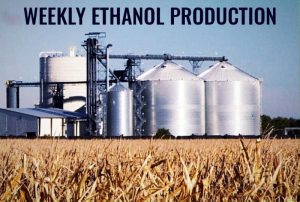 With the Senate Environment and Public Works Committee scheduled vote next week on the nomination of Andrew Wheeler to be administrator of EPA, Renewable Fuels Association (RFA) CEO Geoff Cooper sent a letter to Wheeler this week to provide input on the agency’s upcoming RFS reset proposal.
With the Senate Environment and Public Works Committee scheduled vote next week on the nomination of Andrew Wheeler to be administrator of EPA, Renewable Fuels Association (RFA) CEO Geoff Cooper sent a letter to Wheeler this week to provide input on the agency’s upcoming RFS reset proposal.
RFA is asking Wheeler to use the reset rule as an opportunity to restore the RFS volumes that were “inappropriately erased” by granting numerous small refinery exemptions and other actions, including:
The 500 million gallons of renewable fuel improperly waived from the 2016 standards, as required by the D.C. Circuit Court of Appeals’ remand in Americans for Clean Energy v. EPA;
The approximately 232 million Renewable Identification Number (“RIN”) “write-off” as part of the Philadelphia Energy Solutions Refining and Marketing, LLC bankruptcy settlement; and
The 2.25 billion RINs attributable to 48 small refinery exemptions granted for compliance years 2016 and 2017, of which approximately 1.8 billion RINs were for conventional biofuel.
“As a result of these waivers or exemptions from required volumes, many ethanol plants have recently idled, shut down, or announced layoffs. These compliance exemptions also have hurt demand and prices for American farmers. At a time when trade disputes are dampening export market opportunities, the EPA-induced disruption in domestic ethanol and corn demand is devastating,” Cooper wrote.
Cooper explains that the “reset” provision of the RFS is triggered when EPA waives certain volumes of the RFS by 20% or more in two consecutive years or 50% in one year. “So we’ve hit that point and EPA is working on a proposal to reset the 2020-2022 volumes,” said Cooper.
Listen to his explanation here: RFA CEO Geoff Cooper explains reset provision of RFS
 For the week ending January 25, ethanol production was lower while stocks were higher.
For the week ending January 25, ethanol production was lower while stocks were higher.










